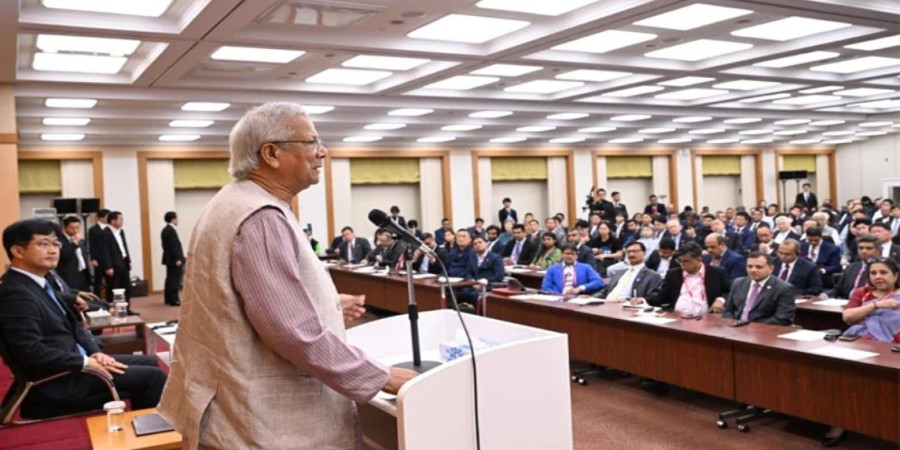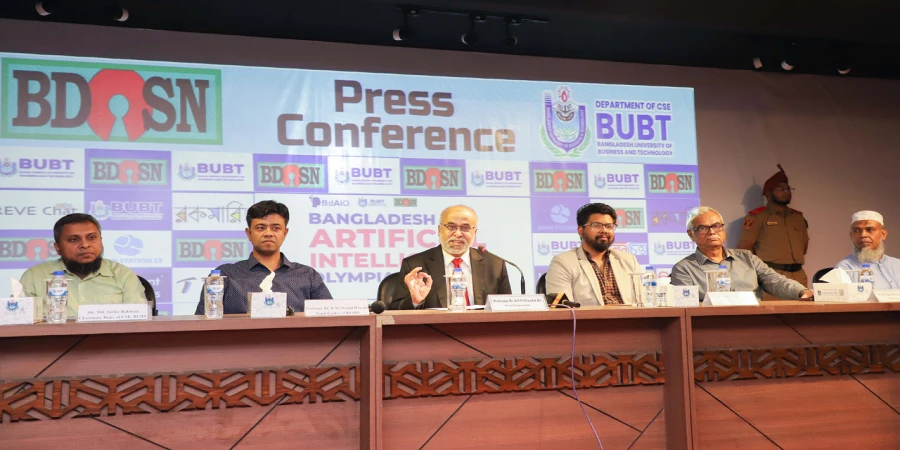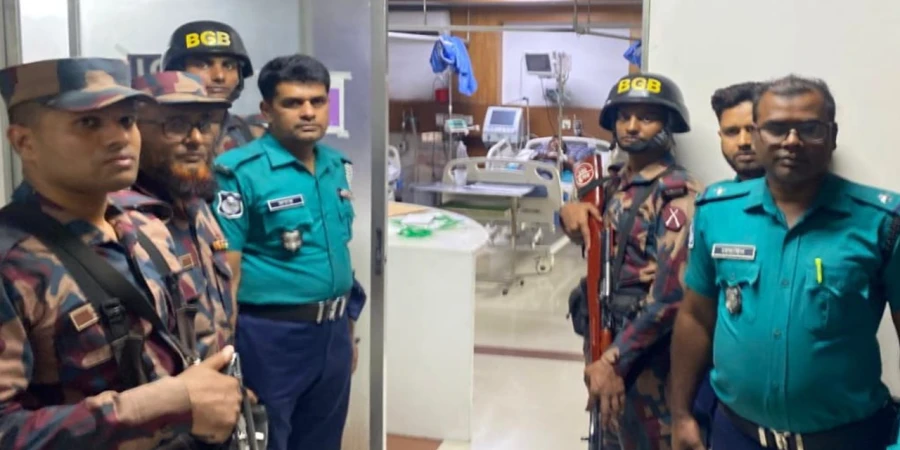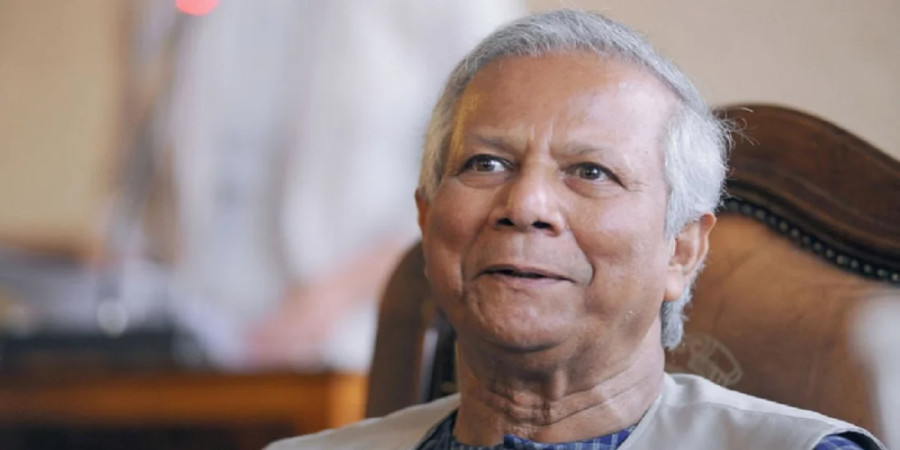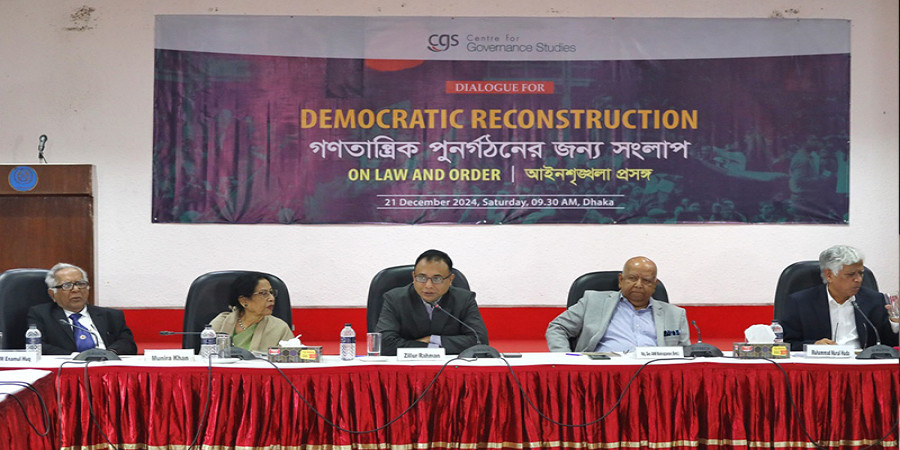
ছবি: The CGS discussion session was held at the SIRDAP auditorium in the capital. | Photo: CGS Facebook page.
Reforming the police force in Bangladesh will remain ineffective without genuine political will, said speakers at a dialogue titled "Dialogue for Democratic Reconstruction: Law and Order Issues," organized by the Center for Governance Studies (CGS) on Saturday at the SIRDAP auditorium in Dhaka.
Human rights activist ASM Nasiruddin Elan, Director of the organization Odhikar, highlighted the alarming human rights violations perpetrated by the police over the last 15 years. He noted that human rights organizations have managed to document only a fraction of the abuses. Elan pointed out that despite a surge in public movements in July and August, extrajudicial practices persisted. According to Odhikar's report from the past three months, nine people have fallen victim to extrajudicial killings, with six dying due to torture and three from gunfire. He stated that current legal proceedings frequently exclude actual perpetrators and instead implicate numerous innocent individuals. Allegations of profiteering within the police have also surfaced, raising concerns about systemic corruption and abuse of power.
Major General (Retd.) ANM Muniruzzaman, Chairman of the Bangladesh Institute of Peace and Security Studies, stressed the need for broader reforms in the law enforcement sector rather than focusing solely on the police. He suggested decentralizing the police force, addressing gaps in mental health support, and enhancing the training of officers with modern technologies. Muniruzzaman underscored the importance of parliamentary oversight, creating a national security council, and establishing a code of conduct for the police. He also called for collaboration with advocacy groups to act as watchdogs and urged the public to hold the police accountable for their actions.
Former Inspector General of Police (IGP) MN Enamul Haque emphasized the necessity for police officers to resist unethical directives from political leaders, even if doing so requires courage. He criticized the lack of implementation of previous commission recommendations and stressed the need to ensure their enforcement.
Former Justice Ikhtedar Ahmed highlighted the need to redefine the police’s role and accused both past and present governments of violating constitutional principles for political gains. He warned that such actions undermine the establishment of democracy in the country.
Zahir Uddin Swapan, an advisor to the BNP Chairperson, questioned whether the nation needs police services or control over the police. He called for political reforms to reduce the centralization of power and reiterated that all political parties must recognize the police’s fundamental duty to serve the public.
Former IGP Muhammad Nurul Huda criticized the hierarchical promotion structure within the police, arguing that it has transformed the force into an oppressive entity. He advocated for accountability mechanisms across all sectors and emphasized that everyone, including those responsible for economic mismanagement, must seek forgiveness and face justice. Nurul Huda called for ensuring a balance of authority to prevent excessive force in the future.
Barrister Andaleeve Rahman Partha, President of the Bangladesh Jatiya Party (BJP), stated that the country requires principled politicians and emphasized the need to elect capable individuals to governance roles. He added that a corrupt electorate will inevitably lead to corrupt leaders.
Asaduzzaman Fuad, Member Secretary of the Amar Bangladesh (AB) Party, argued that the country's founders failed to grasp the concept of statehood, resulting in a feudal system that persists to this day. He urged citizens to evolve from being mere residents to true participants in the nation's civic life.
Munira Khan, Chairperson of CGS, observed that democratic reconstruction remains fragile, with the police being historically exploited by successive governments. She stressed the importance of ensuring justice for offenders and fostering coordination between the judiciary and law enforcement. Munira noted that procedural abuses, such as detainees paying magistrates for release, undermine public trust and accountability.
CGS Executive Director Zillur Rahman highlighted governance deficits as the root cause of systemic inefficiencies. He noted that the term "reform" has become overused and increasingly meaningless. Rahman expressed concerns over the inability of interim governments to ensure law and order, citing rising inflation, business insecurity, and police demoralization as symptoms of broader governance failures.
Other speakers at the dialogue included Nurul Haque Nur, President of the Gono Odhikar Parishad; Barrister Rasha Imam; and Ushatan Talukder, former MP from the Chittagong Hill Tracts. They all stressed the urgency of institutional reforms to strengthen democracy and ensure justice.
repoter



